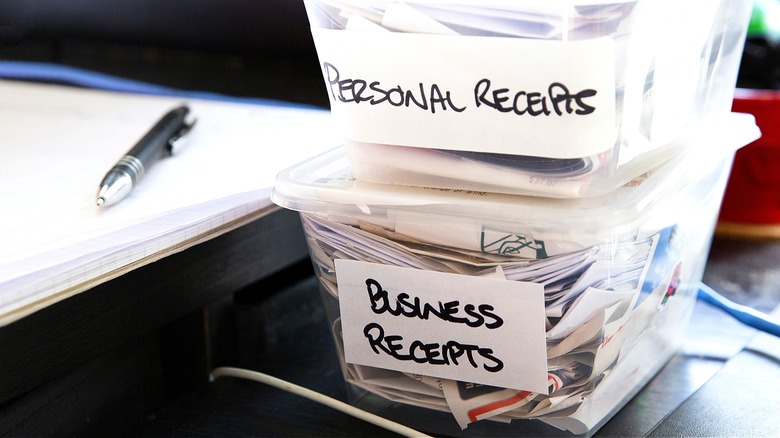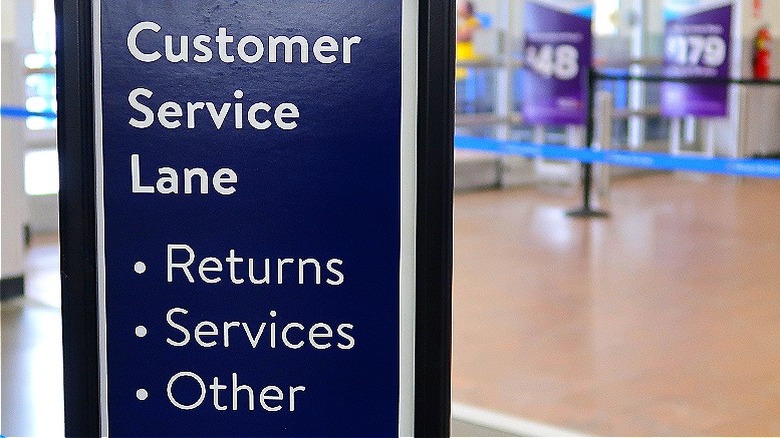Why You Should Think Twice Before Throwing Out Your Receipt
These days, as we look for more ways to save money, the flip side of that budgeting coin is not to lose any money unnecessarily. One way to do so is to hang on to your receipts — or at least, to think twice before throwing one away. Depending on what the receipt is for, you might need it again down the road and being able to find it, check it, and produce it quickly can save you not only money but also the stress of trying to track the receipt down again.
Consider, when budgeting to stay out of debt after holiday shopping, you likely hang on to all your gift receipts, just in case you need to make a return or shop for a replacement. After a certain amount of time passes, though (such as after a return is no longer possible), you can toss the receipt, knowing you won't need it again. The same prudence should be given to most receipts and the time you save them will vary. For example, for taxes? You should keep all relevant documents, including receipts, for at least three years, per the IRS.
Saving receipts to itemize your tax return accurately
While going overboard with credits and deductions on your tax return could be a red flag with the IRS, you also want to accurately list any credits and/or deductions you're entitled to. For example, a freelancer who owns their own business should be able to deduct self-employed business expenses like their home office space and phone and business communications. But if you do, it's important you have the receipts for these expenses to not only calculate the right amounts but also to produce them when needed, whether that's for a tax pro who's preparing your taxes or the Internal Revenue Service after the bureau flags you for an audit. (The IRS typically will review a person's past three years of returns in an audit.)
Basically, for any business expense you plan to deduct on your return, keep the receipt(s) to prove what you're claiming is true, from travel expenses to a new computer for your growing brand. Other receipts you'll want to keep for taxes rather than throw away include certain unreimbursed medical expenses, child care expenses (that fall under the child and dependent care credit (CDCC), per the IRS), and charitable donations.
For returns, exchanges, warranties, and insurance claims
As noted, during the holidays, you might hang on to receipts you normally would throw away. But, keeping your receipts, even if it isn't holiday time, is always a good idea, at least until you're certain you won't return the item or exchange it for something else. Every store has a different return policy, too, so having a record of your purchase can be the key to a hassle-free return or exchange wherever it may be. Also, if you need to dispute anything (e.g., you realized you were charged more than the price tag on the floor shelf), you'll have everything you need to make your case with your receipt.
Beyond returns and exchanges (and disputes), though, another reason to hang on to store receipts is for warranties. For example, if you need to prove the date you purchased an item (and that you have one more month on the warranty), being able to produce the receipt to prove your point of purchase will make it much easier to get your item fixed and your case resolved.
Also, for antiques, collectibles, jewelry, fine art, or any other valuables you've taken insurance out on, hang on to these receipts indefinitely. If the item is ever damaged or stolen and you need to file a claim, a receipt will prove your ownership and how much you paid for the item in question.


